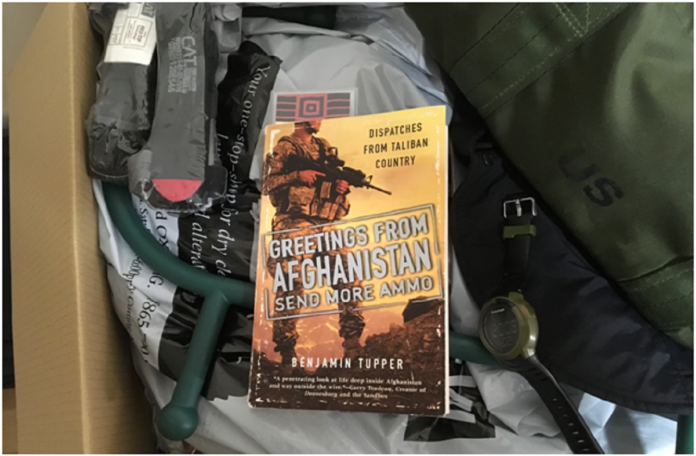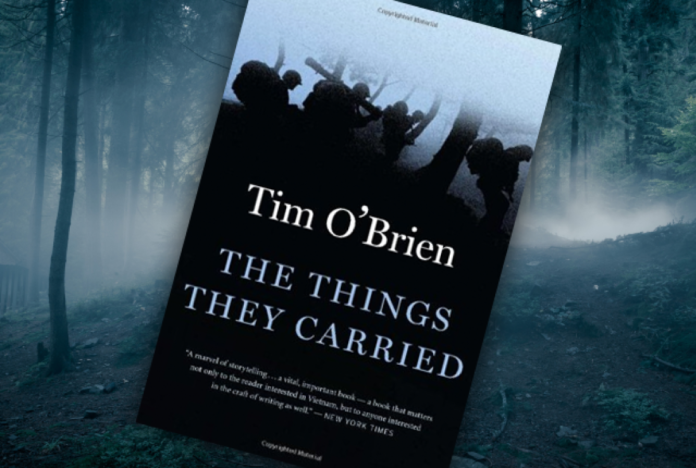Article: End of Summer Read – Greetings From Afghanistan Send More Ammo

End of Summer Read – Greetings From Afghanistan Send More Ammo


It’s the end of summer, and I’m done with theory and university life. College degree…check. As I pack my belongings to move out of school accommodations I start flipping through Greetings From Afghanistan Send More Ammo by resident OAF writer Ben Tupper. I received the book in the mail months ago, but my course load got in the way. Political theory, international relations, Realism vs Liberalism vs Constructivism was the immediate threat. Prioritize and execute. Who has time to read about real world implementation and follow-on effects?Besides, I cashed in my GI Bill to explore life outside of the military, not to run back to my safe space. Indeed, Tupper’s book, for anyone with combat experience, may trigger an addiction relapse associated to emotional consensus and tribal euphoria…and with it perhaps a bitter-sweet reminder that as a warrior I have peaked.The book is a collection of short stories revolving around Tupper’s deployment to Afghanistan as an Embedded Training Team (ETT) leader from 2006 – 2007. They’re laid out in sequential order and include chapters on such topics as homecoming and recovery. Although each chapter is a story on its own I suggest reading the book from front to back.Between the lot of us there are probably thousands of war stories that 1.) need to be told in order to educate the next and current generation, 2.) shouldn’t be told for OPSEC or risk of prosecution, or 3.) are just too peculiar to be understood by anyone except for those who’ve been in a gun fight. Ben’s book comfortably fits into category 1.Greetings from Afghanistan is an easy read depicting particular exploits and antics of Tupper’s team. If some of the stories sound familiar it’s probably because you either had similar experiences during your time in the military or you came across these stories via National Public Radio. Ben first published his writings via blog and/or broadcast in near real time from his outstation in Afghanistan without COC permission and later parts were picked up by NPR. This is probably one of the most intriguing aspects of Ben’s book. A balancing act of staying under the leaderships’ radar, while still portraying the realities of his situation.One of my favorite comedic concepts that Ben describes in his book is ‘combat street cred.’ We all know what it is. The closest phrase my team used was, ‘looking cool is half the battle.’ It’s that fine line we walk between self-preservation and keeping up appearances. It’s the pimp walk you must maintain during a mortar attack when deep down inside you want to dive for cover.It’s a bit of a stretch but being freshly educated in social theory I’ve tried to associate what was taught in class to some empirical ground truths I learned down range. The chapter WE HAVE ALL THE WATCHES, THEY HAVE ALL THE TIME elaborated upon a concept many of us probably came to realize during our stints down range: Time - the social construct we in the US associate with punctuality, task organization, and a relatively short national history is fundamentally different to the “inshallah” mindset and the historical construct of a multigenerational chronicle spanning thousands of years more commonly found in the Middle East and Central Asia which results in significant cultural differences, divergent political structures, and an apparent futility with any strategy centered on the notion of nation building. Thankfully, Ben offers some amusing, oversimplified solutions to these complex issues within his book like for example importing ‘fifty thousand Brazilian women and one thousand Italian-American women into Afghanistan.’ But hey, the simplest COA is usually the best COA…right?The concluding chapters of Greetings From Afghanistan delve into subjects that may hit closer to home with the OAF audience. Perhaps being away from my military tribe for the first time in 20 years…or just the fact that I just spent the last year of my life forced to think and contemplate in isolation (e.g. the university library) opened up the Pandora’s Box of compartmentalized personalities in my brain…and I can’t say that I’m better for it at this time.While in active duty, I prided myself on my ability to task manage these compartmentalized boxes to suit whichever situation I was getting into. Something seems to be changing. It’s an uncomfortable feeling to be sitting in a classroom of students and one of those compartmentalized boxes unexpectedly falls off the shelf. Your heart starts pounding, you gulp to correct the moisture imbalance in the back of your throat, and your body is expecting a release. A breaching charge, some sort of violent outlet…but instead you’re left with curious glances and no emotional consensus. Tupper labels this feeling as the unsustainable addiction to ‘the drama, the thrill, the risk, the camaraderie’ that you become accustomed to during a combat deployment. This book was full of such anecdotal lessons learned and commentary that helped conceptualize similar situations I faced during deployment, back at garrison, or post active duty.And so I sit composing this book review, realizing that each person will ultimately take something different away from Tupper’s story. It’s not a complex book designed to provoke national debate. You’ll probably finish it in a week. If you’re still active duty, you may even be able to take away a few tactical lessons. The bottom line is that I would recommend the read for those wishing to learn about what life was like at an outstation and/or to reminisce on team life.
Written By Chungk
9/6/18








